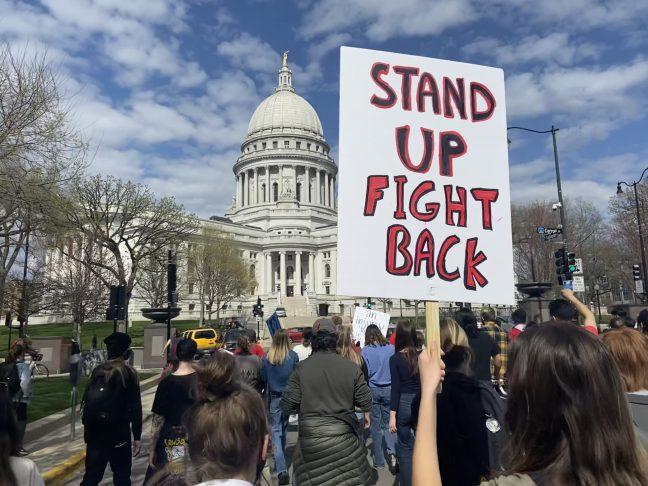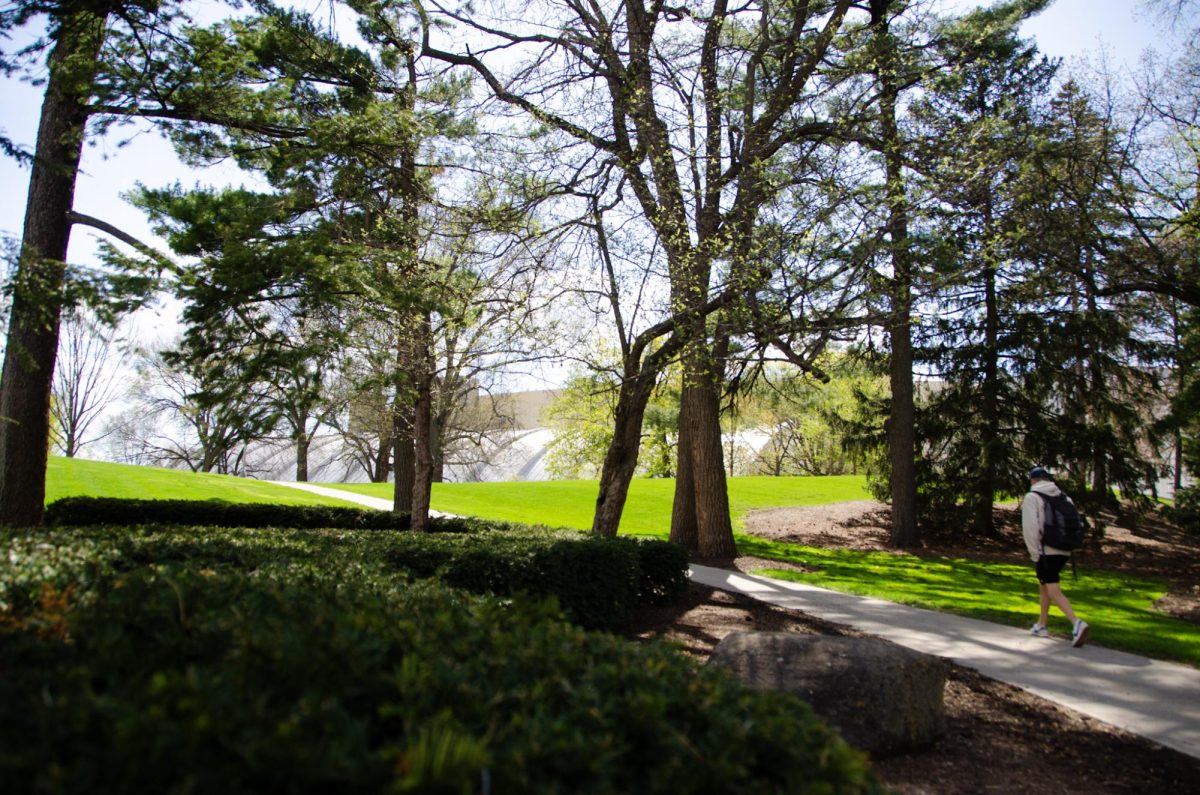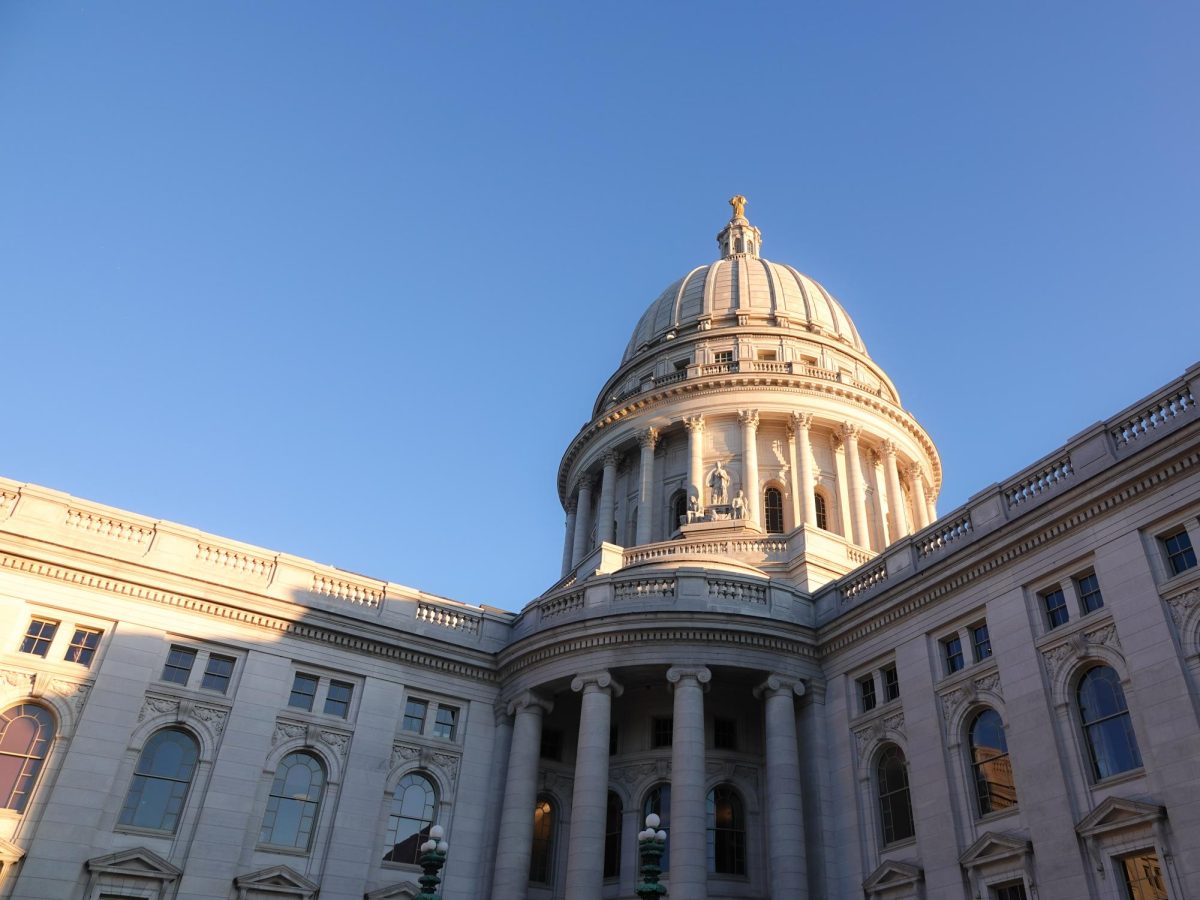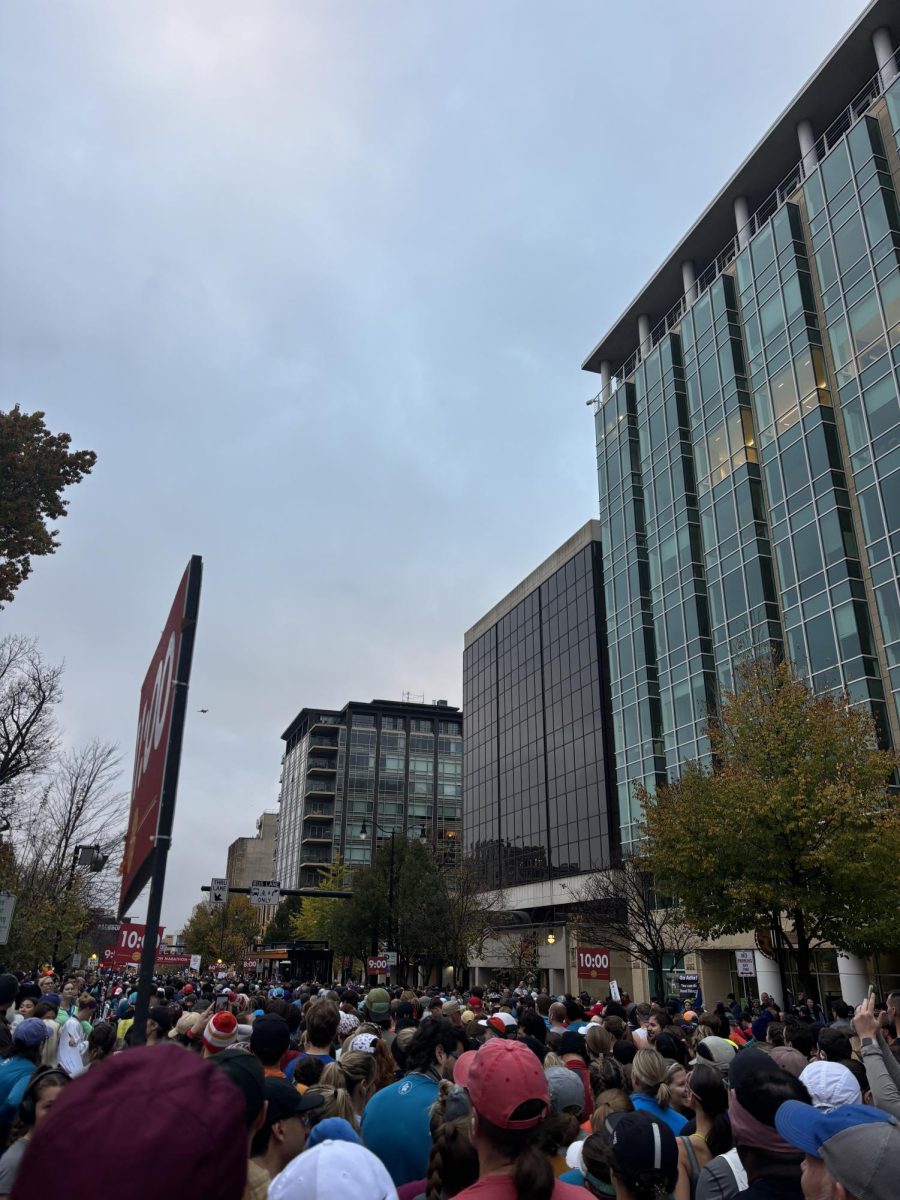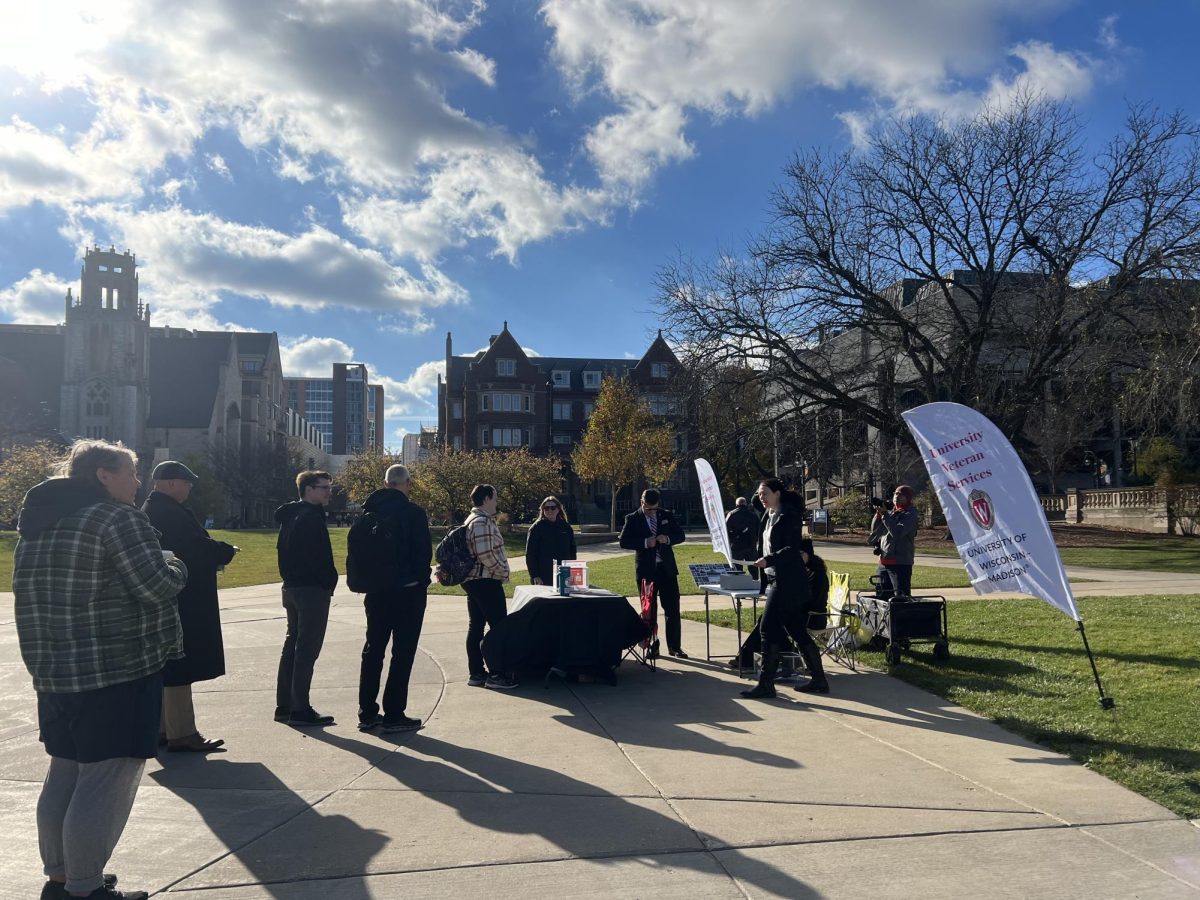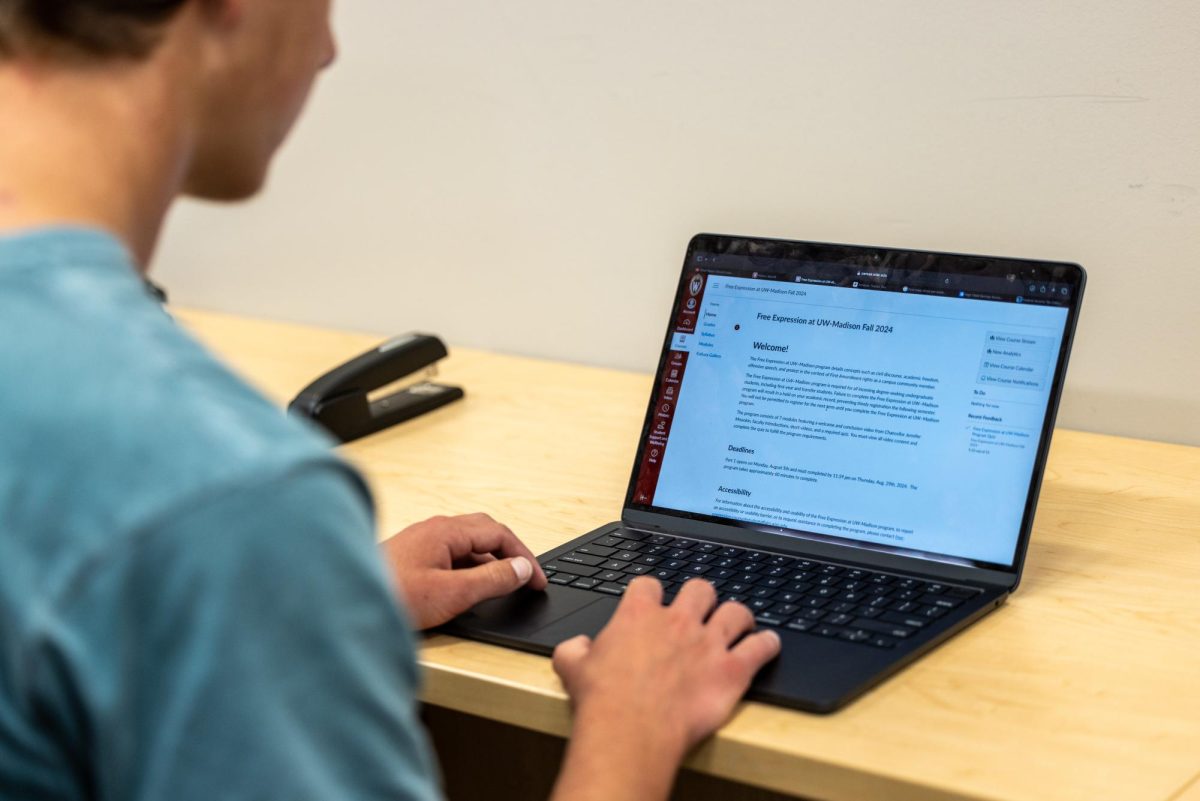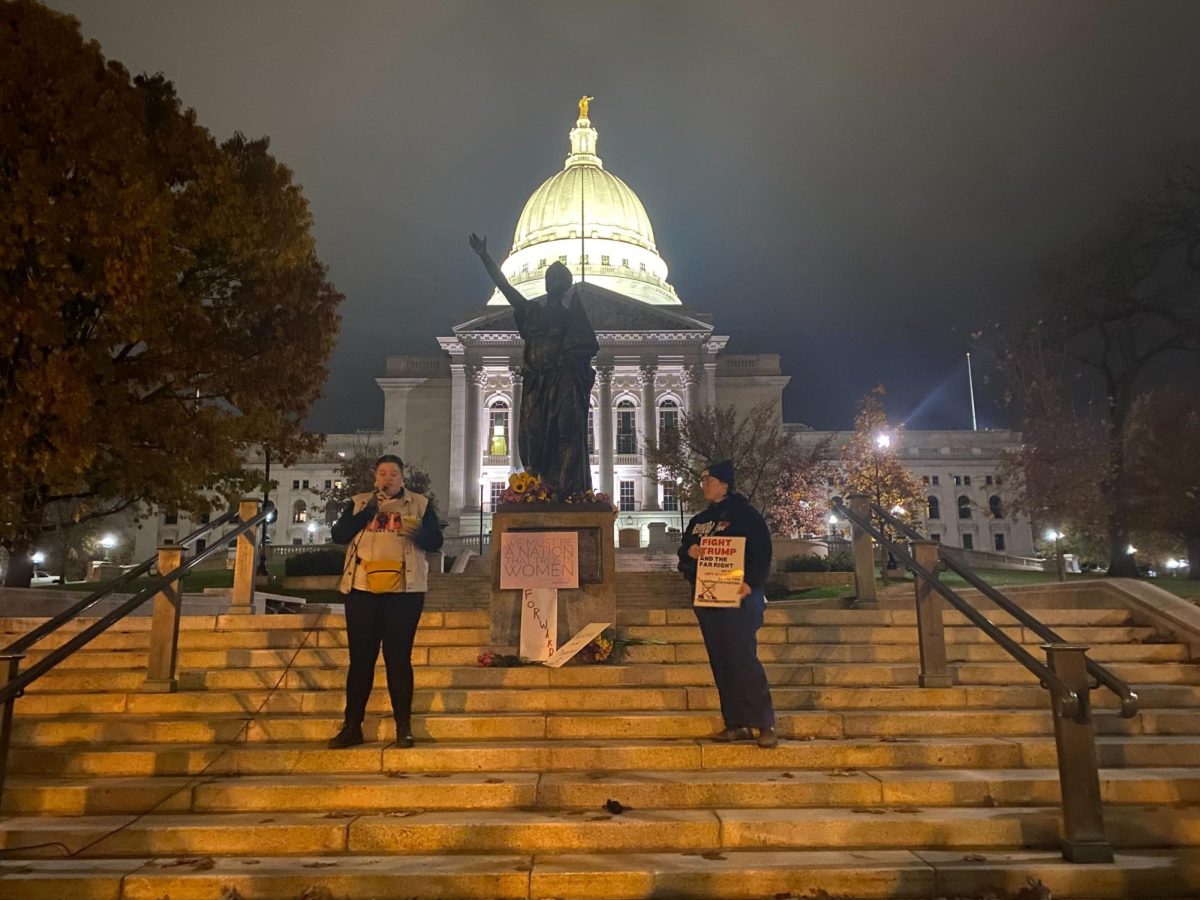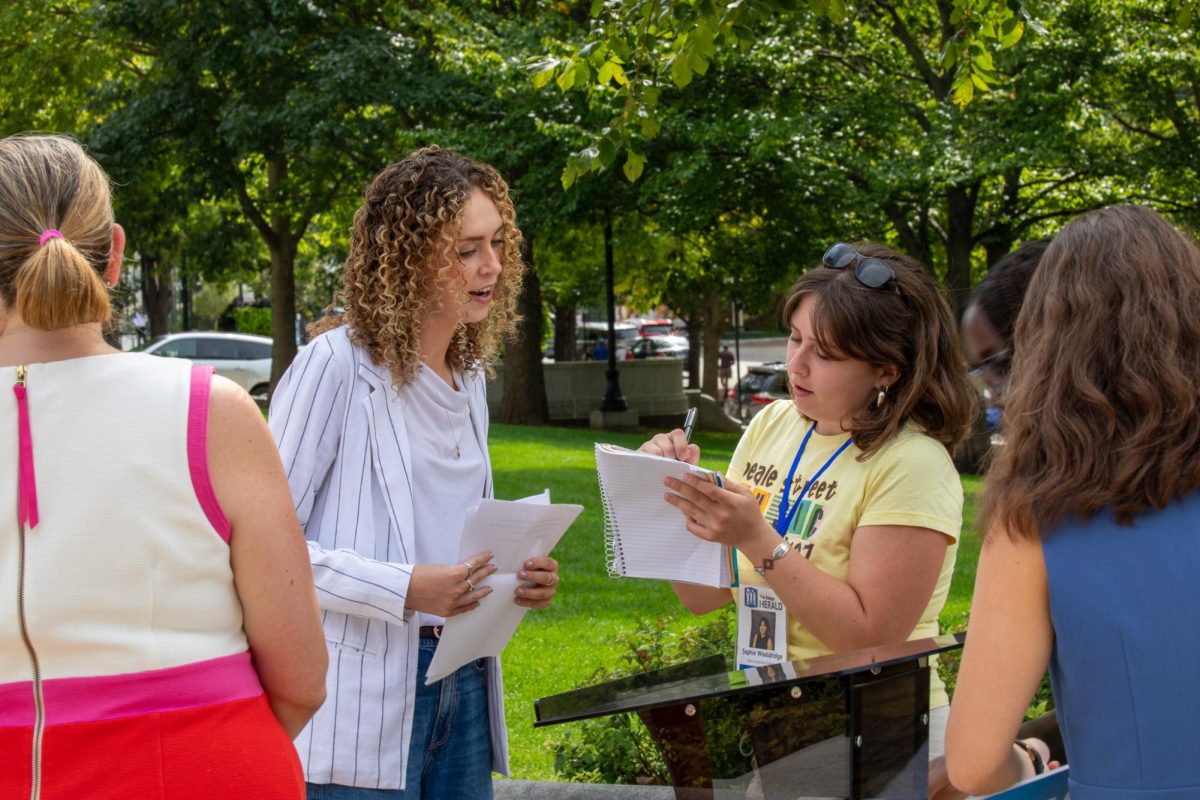Over 100 individuals gathered Sunday afternoon to march to the state Capitol in solidarity with BIPOC communities and nationwide protests following the police shootings of Daunte Wright and Adam Toledo.
The University of Wisconsin BIPOC Coalition planned and led the demonstration called a “March for Unity.” Protesters gathered at the Camp Randall Arches before marching down Dayton Street to the Capitol building.
Officer who shot Jacob Blake will not face consequences, returns to work
During the march, protesters chanted “The people United will never be divided,” and “1, 2, 3, 4, 5, 6, 7, 8, 9, 10, 11, f**k 12.” Protesters marched behind a car caravan and bikers lined the sides of the road to block traffic where protesters crossed the streets.
The march comes as Derek Chauvin’s trial is underway in Minneapolis was compounded by the police shootings of Daunte Wright and Adam Toledo last week.
The march ended at the Capitol where the group gathered around a barbeque provided by organizers and listened to several community members speak about their experiences.
District 8 alder-elect Juliana Bennett said the protest today was significant because it carried on the BIPOC Coalition’s role to create a unified community voice following the recent police violence in Brooklyn Center and Chicago.
After three members of the BIPOC Coalition were arrested in protests at Brooklyn Center earlier this week, Bennett said the community needed to come together and provide this space for healing.
UW activists march to remember Tony Robinson on anniversary of his death
“That’s an insane concept to think about and it’s a system that we all abide in,” Bennett said. “It’s frustrating and we’re all taking time to heal, and I think that we can do that by hanging out here with our friends, building community.”
BIPOC Coalition founder Tarah Stangler was one of the individuals arrested in Brooklyn Center. Stangler was arrested while trying to help fallen individuals after police deployed three flash bangs and was held for 16 hours before they were released without charges.
Stangler said there was a sense of needing to do something that was unifying for the community in the wake of the injustices and violence.
“This was one of those events where we were hoping that people would come together and recognize that we’re all facing these issues,” Stangler said. “The issue right now that’s the most prevalent and the most out there is the fact that we live in a system and a place that’s pounded by white supremacy.”
Several individuals spoke about their experiences, including Althea Bernstein, who was burned with lighter fluid at a stoplight last June in Madison. Bernstein said the Madison Police Department “treated [her] as a suspect” throughout the investigation and claimed there was not enough evidence to file any charges.
Federal officials, MPD close investigation into hate crime, cite ‘insufficient evidence’
In addition to personal stories, other speakers talked about the police shooting of Tony Robinson and the continued employment of Matt Kenny — the officer who killed 19-year-old Robinson — by the MPD.
Associated Students of Madison chair Matthew Mitnick said protests are needed to get the attention of people in power, including local government officials and the UW administration. When asked why they were protesting, ASM Rep. Adrian Lampron said they wanted to show support for different communities on campus.
“There are a lot of issues that I think matter to folks in our community and our school and it is good for us to get out and show that people are actually willing to do something about it,” Lampron said. “For me, as someone who is involved in a lot of the processes trying to change policies, it’s good to also just be here and have community and know that there are other people that support us.”
Digital News Editor Erin Gretzinger contributed to this article.


